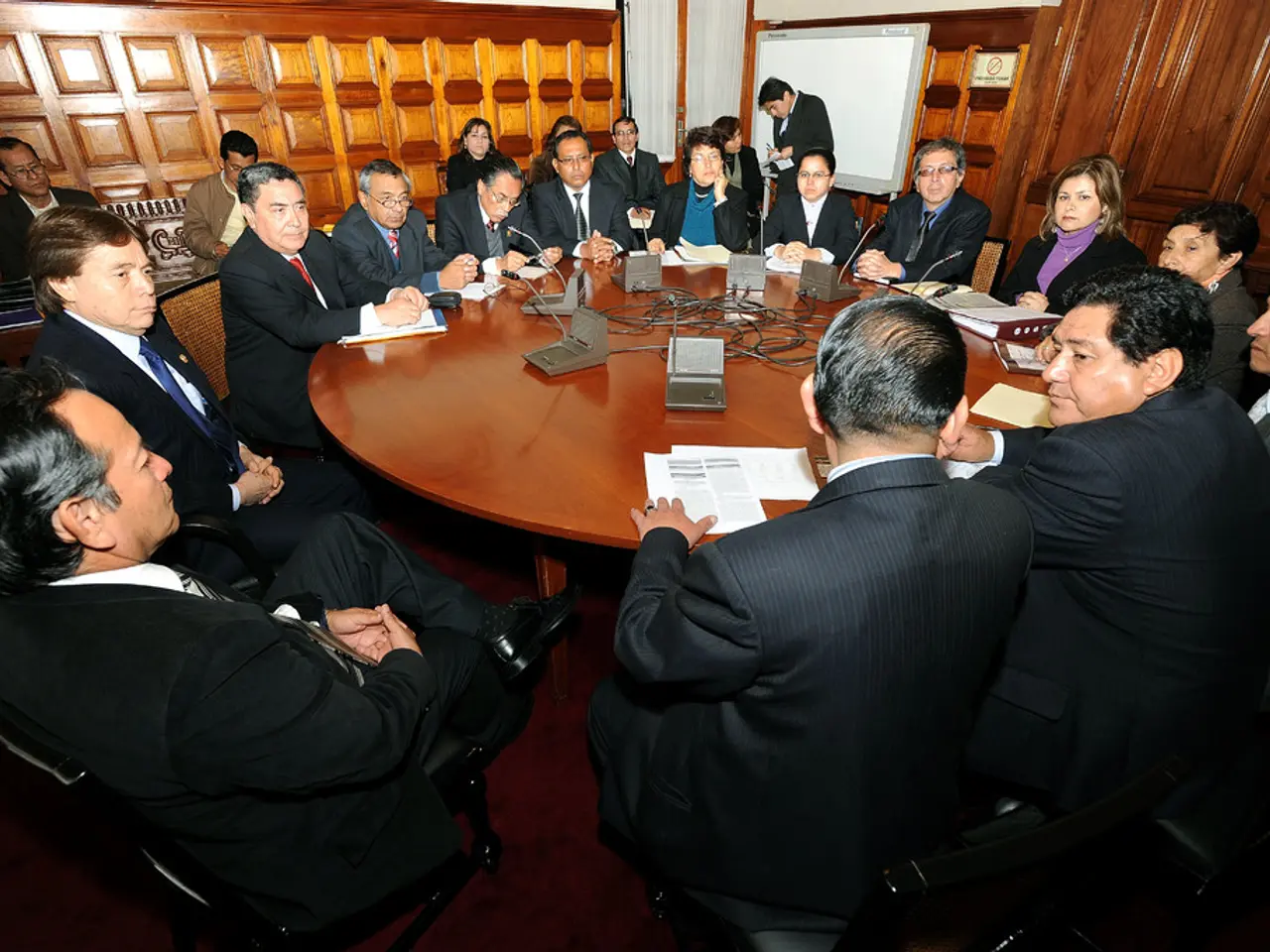Ireland may find that tariffs will not lead to catastrophe in a specific scenario
The Uruguay Round, a significant event in global trade history, marked a high point in the postwar drive to free world trade and reduce tariffs. This series of negotiations, involving more than 120 countries, took place over an unspecified period of time and concluded in 1994.
The key outcomes of the Uruguay Round were far-reaching. The creation of the World Trade Organization (WTO) in 1995, alongside agreements to reduce tariffs and trade barriers across various sectors, provided a comprehensive trade framework with enforceable rules and a dispute settlement mechanism for international trade.
For Ireland, the Uruguay Round had a significant impact on both its industry and agriculture. The trade-off for Ireland was unique to its domestic sectors, with potential gains for industry a significant consideration, but the agricultural sector a focus of concern.
The Uruguay Round resulted in more open global markets and tariff reductions, benefiting export-oriented Irish industries. The new WTO rules promoting freer trade provided better access to international markets for Irish industries, particularly those exporting goods and services.
However, Irish agriculture, which traditionally sought protection, had to adapt to increased competition due to the reduced tariffs on agricultural products and reforms under the Agreement on Agriculture, part of the Uruguay Round package. This increased competition reshaped Ireland’s agricultural landscape, requiring modernization of competitive sectors.
The conclusion of the Uruguay Round had implications for the global trade landscape. The general outcomes of tariff reduction, opening of services markets, the introduction of stronger intellectual property protections, and establishment of the WTO’s dispute settlement system would have reshaped Ireland’s trade landscape significantly by promoting exports and requiring modernization of competitive sectors.
In summary, the Uruguay Round led to Ireland benefiting from expanded market access and stronger trade rules, though Irish agriculture faced challenges due to increased international competition resulting from tariff reductions and agricultural reforms agreed in the round. The trade-off for Ireland was a strategic decision balancing potential benefits and risks. The media spent many hours outside meeting rooms during the Uruguay Round negotiations as the potential gains and threats were carefully weighed.
The strategic decision for Ireland during the Uruguay Round involved balancing potential benefits for export-oriented industries in the finance and business sectors, while also addressing concerns about increased competition in the agricultural industry due to tariff reductions and reforms under the Agreement on Agriculture. The new finance-friendly global trade framework, established by the Uruguay Round outcomes such as the WTO, freer trade rules, and stronger intellectual property protections, provided significant opportunities for Irish industries to access international markets.




